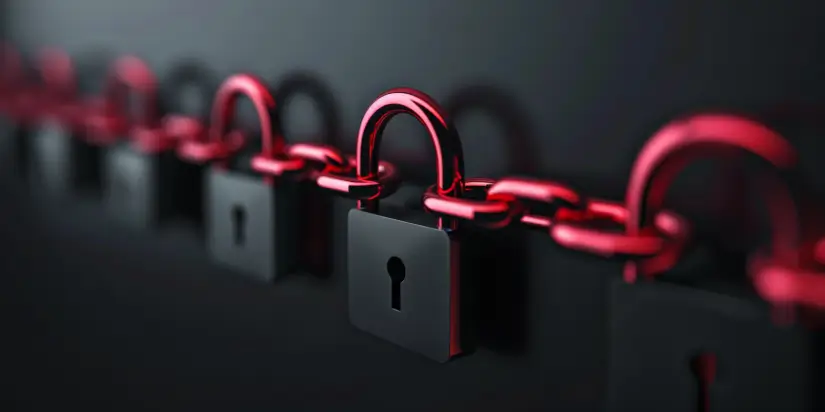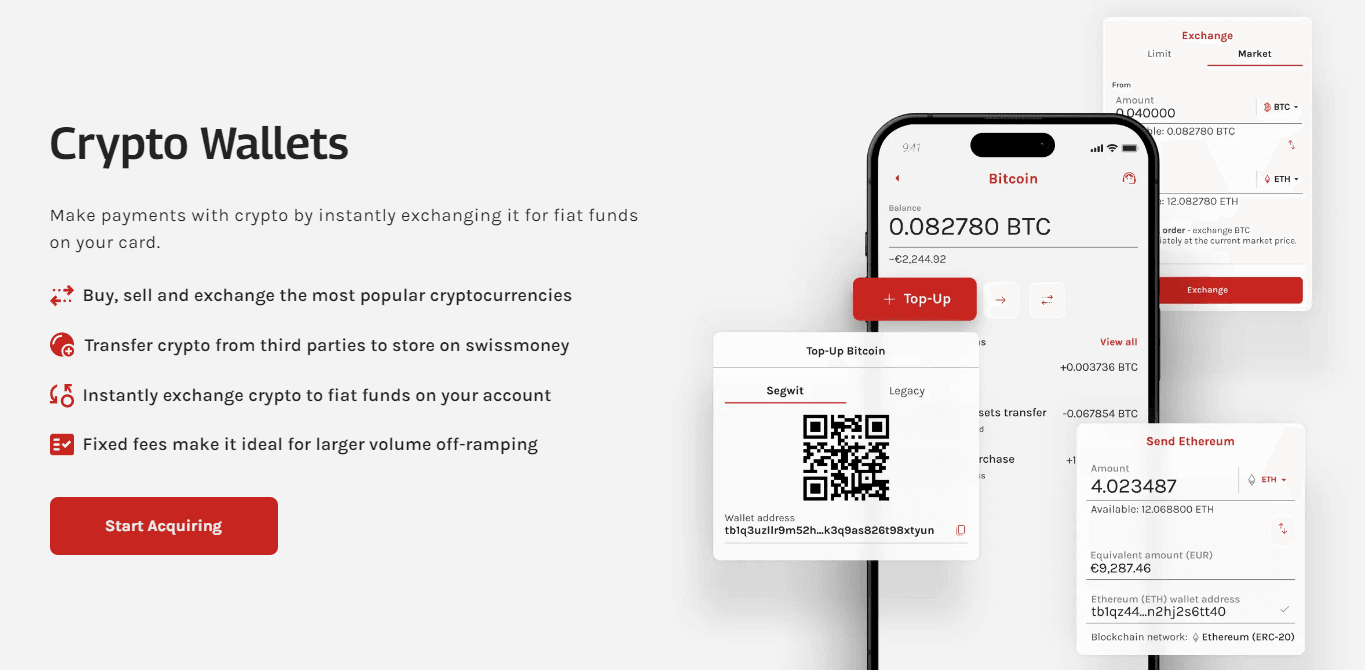[key_takeaways]
- Activating two-factor authentication adds a layer of security to your crypto wallets.
- Using strong passwords is crucial for defending your cryptocurrency wallet against unauthorized access.
- Update software regularly to ensure protection against the latest security threats.
- Encrypting your wallet safeguards your private keys.
- Regular backups are essential for recovering your crypto if you lose access to your device
[/key_takeaways]
In the past year, the cryptocurrency landscape has been marred by over $1.75 billion in losses due to thefts and scams.
This statistic highlights the importance of keeping your crypto wallet safe, especially as cryptocurrency adoption reaches new heights.
Newcomers to the crypto space are particularly vulnerable if they are unaware of best practices.
This guide equips you with the latest and most effective methods to keep your crypto wallets safe and ensure their security in 2024.
With these insights, you can ensure peace of mind and protect your digital currencies from potential threats.
1. Set up two-factor authentication (2FA)
Two-factor authentication (2FA) adds a crucial security layer, requiring not only a password and username but also something that only the user has on them, such as a physical token or a mobile phone application code.
This method ensures that crypto wallets work to protect your private keys even when your wallet is connected to the internet.
What are the benefits of using 2FA:
- Enhanced security: 2FA requires two types of information from the user, making it harder for attackers to gain unauthorized access.
- Mitigation of damage: Even if one factor is compromised, the presence of a second layer can prevent or mitigate potential losses.
- User alert: With 2FA, any attempt to access the account requires confirmation from the second factor, which alerts the user about unauthorized access attempts.
How to enable 2FA:
- Log into your wallet: Start by logging into your crypto wallet, where you normally access your account settings.
- Find the security settings: Navigate to the security settings, often found under account or privacy settings on your wallet dashboard.
- Select the option to enable 2FA: There are various 2FA methods, including text messages, email, or an authenticator app.
- Set up through an authenticator app: For the best security, choose an authenticator app like Google Authenticator or Authy. Using the app, scan the QR code provided by your wallet to link your account.
- Backup your 2FA codes: Ensure you save your backup codes in a secure place. They will be vital if you lose access to your second-factor device.
📚Read More: What is a two-factor authentication (2FA) in crypto?

2. Use a strong password
A robust password acts as the first line of defense in protecting your cryptocurrency wallet.
It prevents unauthorized access and secures your digital assets against brute force or dictionary attacks, which are common methods used by hackers.
What are the benefits of using a strong password:
- Increased protection: Strong passwords are more difficult for hackers to decipher, reducing the likelihood of unauthorized access.
- Reduces breach impact: Even if other information is compromised, a strong password can prevent access to your digital wallet.
- Easy to implement: Creating a strong password is a simple step that significantly enhances your wallet's security without additional cost.
How to create a strong password:
- Use a mix of characters: Include letters, numbers, and symbols to increase the complexity of your password.
- Avoid common words and phrases: Do not use predictable sequences or words that can be easily guessed, such as "password" or "123456".
- Consider a passphrase: Use a random combination of words that are easy for you to remember but hard for others to guess.
- Utilize a password manager: Consider using a password manager to generate and store complex passwords.
- Update regularly: Change your password periodically, especially for software wallets, to prevent potential security breaches of your digital wallets.
📚Read More: Safest Ways to Store Your Cryptocurrency
3. Regularly update wallet software
Keeping your software wallet updated is crucial for maintaining robust security defenses against evolving cyber threats.
Regularly updating your wallet software ensures that the security protocols guarding the digital contents your wallet stores remain impervious to new threats.
What are the benefits of regularly updating wallet software:
- Security enhancements: Each update may include patches for security vulnerabilities.
- New features: Updates often come with new features that improve usability and security.
- Bug fixes: Regular updates fix bugs that could potentially be exploited by malicious entities.
How to ensure your wallet software is regularly updated:
- Enable automatic updates: Most wallet software offers an option to download and install updates automatically.
- Check for updates manually: Regularly visit the official website of your wallet provider to check for available updates.
- Subscribe to update notifications: Many wallets allow you to sign up for emails or notifications for new updates.
- Verify update authenticity: Always ensure that you are downloading updates from the official source to avoid malware.
📚Read More: Essential Guide to Protecting Your Crypto

4. Encrypt your wallet
Encrypting your wallet adds a layer of security that protects your private keys from being accessed by anyone who does not have the decryption key.
It also secures the private keys needed to access the hardware wallet or any cold wallets, enhancing the overall security of your wallet.
What are the benefits of encrypting your wallet:
- Enhanced security: Encryption makes it nearly impossible for hackers to access your funds without the decryption key.
- Privacy protection: Helps shield your transactions and balances from prying eyes.
- Control Over Access: You maintain complete control over who can see and use your funds.
How to encrypt your wallet:
- Choose encryption-capable wallet software: Ensure that your wallet supports encryption.
- Set a strong encryption password: This password should be different from your wallet password and just as strong.
- Follow the software guidelines: Use the wallet's built-in features to encrypt your wallet according to the provided instructions.
- Backup your encryption keys: Store your encryption keys and passwords in a secure location separate from your wallet backups.
📚Read More: How Fraudsters Exploit Social Engineering Tactics
5. Keep backups of your wallet
Backing up your wallet ensures that you can restore your crypto assets in case of device failure, theft, or data loss. After all, your wallet stores your digital funds.
What are the benefits of keeping backups of your wallet:
- Recovery in case of loss: Enables you to regain access to your crypto if the original device is lost or damaged.
- Protection against human error: Safeguards against accidental deletions or mishandling of the wallet.
- Multiple recovery options: Allows you to recover your wallet through various means depending on the backup method used.
How to keep backups of your wallet:
- Regularly backup your wallet: Schedule regular backups to capture all recent transactions and changes.
- Use multiple backup methods: Include both digital and physical backup solutions, such as USB drives and paper copies.
- Store backups in secure locations: Keep backups in different physical locations that are safe from theft, fire, and water damage.
- Encrypt your backups: Encrypt your backups to prevent unauthorized access in case they are lost or stolen.
📚Read More: How to Stay Safe from Bitcoin Scams And Frauds
6. Utilize multi-signature wallets
Multi-signature wallets require more than one key to authorize a transaction. This adds an additional layer of security by distributing the risk and preventing a single point of failure.
Using a multi-signature approach helps distribute the responsibility of securing the private key, ensuring that no hot wallet or custodial wallet is a single point of failure.
What are the benefits of using multi-signature wallets:
- Enhanced security control: Transactions need multiple approvals, reducing the risk of theft or unauthorized access.
- Shared wallet management: Ideal for organizations or groups where multiple stakeholders must approve transactions.
- Protection against loss: If one key is lost, the wallet and its contents can still be accessed with the remaining keys.
How to set up a multi-signature wallet:
- Select a wallet that supports multi-signature: Ensure the wallet software or service supports multi-signature functionality.
- Create the wallet: Set up the wallet with the desired number of signatures required for transactions.
- Distribute keys among trusted parties: Carefully choose who will hold the keys and ensure they understand their responsibility.
- Test the wallet: Conduct several transactions to ensure everything is working correctly before moving significant amounts of crypto.
📚Read More: Guide to Managing Multiple Crypto Wallets

7. Monitor wallet activity
Regularly monitoring your wallet's activity can help you quickly detect unauthorized transactions or suspicious patterns.
What are the benefits of monitoring wallet activity:
- Early detection of fraud: Quick identification of unauthorized transactions can help in taking immediate action.
- Understanding transaction patterns: Helps in recognizing normal versus abnormal transaction behaviors.
- Security alerts: Some wallets offer alerting services for unusual activities, enhancing proactive security measures.
How to effectively monitor your wallet activity:
- Use wallet services with built-in monitoring tools: Some wallets come with tools that help you keep track of your transactions.
- Set up alerts: Configure email or SMS alerts for transactions, logins, and other significant activities.
- Regularly review transaction history: Make it a habit to check your transaction logs frequently to spot any anomalies.
- Utilize external security services: Consider using security services that monitor blockchain activities for suspicious patterns.
📚Read More: Best Ethereum Wallets for Secure ETH Storage
8. Use a VPN for transactions
Using a VPN (Virtual Private Network) can encrypt your internet connection and hide your IP address, which enhances privacy and security when accessing your wallet online.
Using a VPN is particularly important when you transfer crypto from one wallet address to another, as it secures your internet connection and shields your transaction details from potential interceptors.
What are the benefits of using a VPN for crypto transactions:
- Enhanced privacy: Keeps your IP address and location hidden from network spies.
- Secure connections: Encrypts your data, protecting it from eavesdroppers on public or unsecured networks.
- Access from restricted locations: Allows you to securely access your wallet from locations with strict internet regulations.
How to use a VPN for crypto transactions:
- Choose a reputable VPN provider: Select a VPN known for strong security features and a no-logs policy.
- Install the VPN software: Download and install the software on the device you use for accessing your wallet.
- Connect to a VPN server: Before accessing your wallet, ensure the VPN is active and connected to a server.
- Perform transactions securely: Carry out your transactions while the VPN is running to maintain security and privacy.
📚Read More: Mobile Wallets: The Future of Payments in a Connected World

9. Use cold storage for large amounts of crypto
Utilizing cold storage, such as a hardware wallet, for large amounts of cryptocurrencies is a crucial security measure to isolate significant assets from online vulnerabilities.
A hardware wallet refers to keeping your cryptocurrency wallets offline, preventing any online attacks from accessing these funds.
What are the benefits of using cold storage for large amounts:
- Enhanced security: By storing your cryptocurrencies in a hardware wallet, you remove the risk of online hacks, unauthorized access, and other cyber threats.
- Protection from online vulnerabilities: A hardware wallet is immune to viruses, malware, and phishing attacks that typically target online systems.
- Long-term safeguarding: It is ideal for long-term investments as it securely locks away your assets in a way that is not susceptible to the daily fluctuations of online threats.
How to use cold storage for large amounts:
- Choose the right cold storage option: Options include hardware wallets, paper wallets, and other physical devices that can store cryptocurrencies offline.
- Transfer your crypto: Move large sums of cryptocurrency from hot wallets (online) to your selected cold storage device.
- Secure physical storage: To protect against physical theft or damage, keep your cold storage device in a secure location, such as a safe or a safety deposit box.
- Update security practices regularly: Even though your assets are offline, it’s crucial to keep your physical storage devices and associated software up to date.
📚Read More: What is Cold Storage in Crypto?
10. Use a dedicated device for crypto transactions
Using a dedicated device for managing your crypto wallet can significantly reduce the risk of security breaches associated with general-purpose computing.
What are the benefits of a dedicated device:
- Isolation from risks: Minimizes the risk of contracting malware from everyday internet usage or other applications.
- Optimized security settings: Allows for the implementation of strict security controls that might be impractical on a multi-purpose device.
- Controlled access: Limits physical and network access to the device to reduce exposure to threats.
How to use a dedicated device:
- Choose appropriate hardware: Select a device that can be dedicated solely to crypto transactions and security.
- Install necessary security software: Equip the device with essential security applications, such as antivirus and firewall software, and keep these programs up to date.
- Limit Internet access: Restrict the device’s Internet access to only the websites necessary for performing transactions or managing your wallet.
- Update and back up regularly: Keep the device’s software up to date and back up its contents regularly.
📚Read More: What Is a Crypto Wallet? A Beginners Guide
Store your digital assets at swissmoney wallet

Choosing swissmoney for storing your digital assets combines enhanced security with user-friendly features, making it an optimal choice for both beginners and experienced users.
swissmoney wallet is designed to safeguard your cryptocurrencies while providing seamless access to financial services.
Benefits of using swissmoney wallet:
- All-in-one solution: swissmoney offers a comprehensive platform that integrates the management of both fiat and cryptocurrencies. Users can buy, sell, and exchange crypto, manage multi-currency IBAN accounts, and utilize globally accepted Mastercard prepaid cards.
- Advanced security measures: Your digital assets are protected with cutting-edge security features, including encrypted storage and biometric authentication. swissmoney employs KYC procedures and robust encryption to ensure the security and integrity of your accounts.
- Ease of use: The platform is built with a focus on user-friendliness. Newcomers can navigate the services easily thanks to an intuitive interface and straightforward processes. Whether it's exchanging crypto or conducting global transfers, every action can be performed with a few simple clicks.
Ready to experience superior security and ease of use with swissmoney? Sign up today and take control of your digital assets with confidence. Join the future of finance now!
Conclusion: How to secure your crypto wallet
Securing your crypto wallet is essential in today's digital age, where the security of your assets cannot be taken for granted.
By employing methods like 2FA, using strong passwords, keeping software up to date, and using reliable services like swissmoney, you can ensure that your digital currencies are protected against the most common threats.
Remember, the safety of your crypto assets lies in your hands, and taking proactive steps to enhance security can make all the difference.
swissmoney provides an easy-to-use platform that not only helps in securely managing your digital and fiat currencies but also educates users on maintaining security standards to safeguard their investments.
FAQs
What is a crypto wallet?
A crypto wallet is a digital wallet used to store, send, and receive cryptocurrencies like Bitcoin and Ethereum.
Unlike traditional wallets, a crypto wallet doesn't store physical currency but instead keeps digital records of your cryptocurrency transactions.
How do I make sure my crypto wallet is safe?
To ensure your crypto wallet is safe, use strong, unique passwords for your wallet accounts, enable 2FA, keep your wallet software updated, and use reputable wallets.
Is it safe to keep crypto in a wallet?
Keeping crypto in a wallet is considered safe if you use wallets with strong security measures. Ensure the wallet uses encryption, offers 2FA, and does not expose your private keys to the internet.
Can your crypto wallet be hacked?
Yes, a crypto wallet can be hacked if not properly secured. Utilizing strong security practices and choosing wallets that offer advanced security features can significantly reduce the risk.
How are crypto wallets protected?
Crypto wallets are protected through encryption, which secures the private keys needed to access the wallet.
Many wallets also offer additional security features like 2FA, multi-signature requirements, and backup options to protect against various types of cyber threats.
What is the most secure crypto wallet?
The most secure digital wallet is one that offers robust encryption, multi-factor authentication, offline storage options, and constant software updates.
Hardware wallets generally provide the best security for storing large amounts of cryptocurrencies long-term.
What are the best hardware wallets for securing crypto assets?
The best hardware wallets for securing crypto assets include brands like Ledger and Trezor. These devices store your private keys offline, providing a high level of security against online threats.
What are the best software wallets for securing crypto assets?
Reputable software wallets like Exodus, Electrum, and swissmoney are considered secure for managing crypto assets. These wallets offer strong encryption and support 2FA to enhance security.
How often should I change my crypto wallet password?
It is advisable to change your crypto wallet password every three to six months or immediately after noticing any suspicious activity. This helps maintain security and prevent unauthorized access.
What are the most common phishing scams targeting crypto users?
Common phishing scams targeting crypto users include emails or messages pretending to be from reputable crypto services asking for private keys or login credentials, fake wallet apps, and malicious links that install software to steal your information.
Are crypto wallets safer than banks?
Crypto wallets can be safer than banks if managed correctly because they allow users to have direct control over their digital assets without the need for a central authority.
However, this also means that the responsibility for security largely falls on the individual user.
How can I ensure my crypto wallet is safe when connected to the internet?
To ensure your digital wallet remains safe while connected to the internet, always use a secured network connection, enable two-factor authentication, and use wallets that offer advanced encryption and security features.
What should I do if I lose my private keys for my wallet?
If you lose your private key, regaining access to your funds can be nearly impossible. To prevent this, it's essential to keep secure backups of your private keys in several safe locations, such as encrypted digital storage or a safety deposit box.

